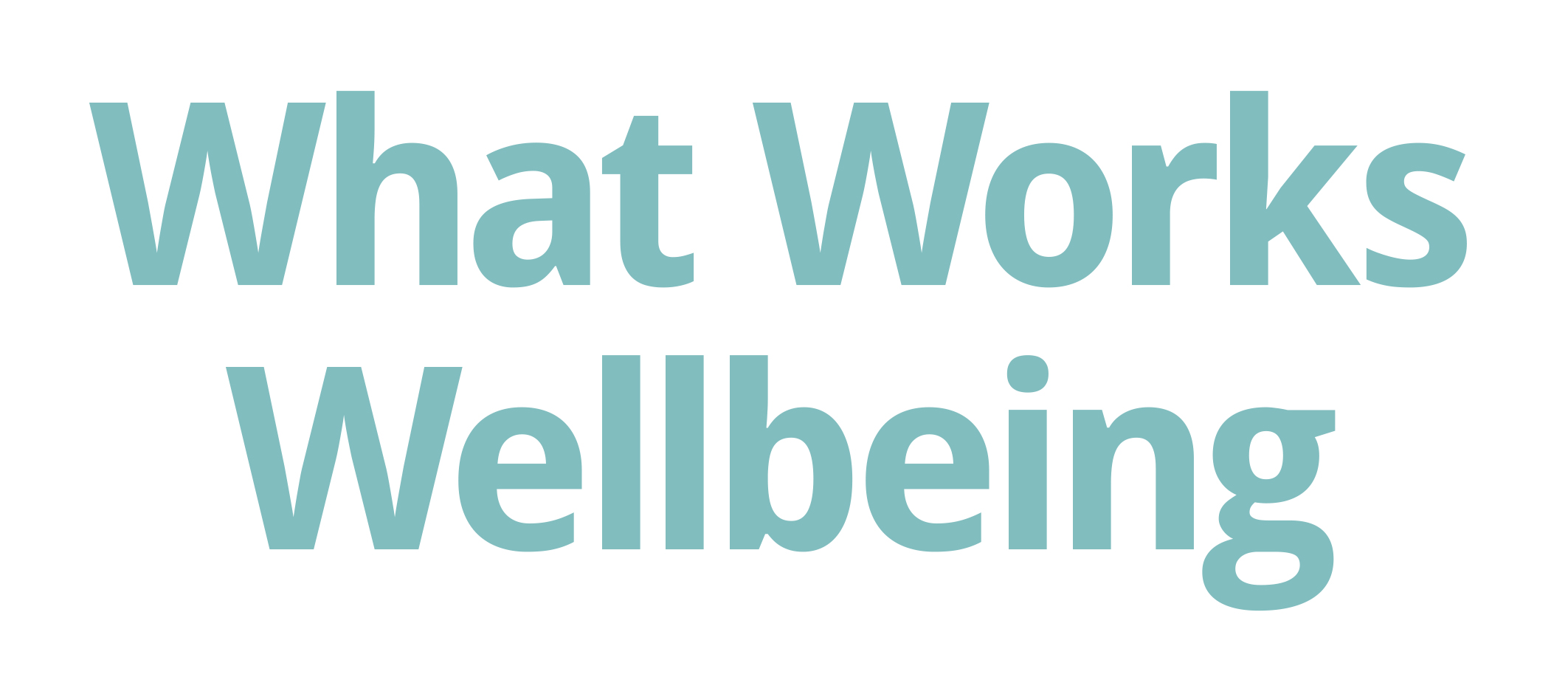Expert Teams and Board Members appointed for What Works Centre for Wellbeing
The Wha t Works Centre for Wellbein
t Works Centre for Wellbein g, together with the Economic and Social Research Council (ESRC) have announced the successful bids for four research programmes to understand what really works to improve the wellbeing of people in the UK.
g, together with the Economic and Social Research Council (ESRC) have announced the successful bids for four research programmes to understand what really works to improve the wellbeing of people in the UK.
Over the next three years, the What Works Centre for Wellbeing will enable policy-makers, local authorities, employers and others to use evidence of wellbeing impact in decision making and to improve people’s lives, by translating academic evaluation of wellbeing measures into easy-to-use information about effectiveness, cost and applicability.
The successful consortia are led by world-renowned academics
- Professor Lord Richard Layard, London School of Economics and Political Science (LSE)
- Professor Kevin Daniels, University of East Anglia (UEA)
- Professor Peter Kinderman, University of Liverpool
- Professor Christina Victor, Brunel University London
Overall, the research spans twelve universities, five civil society groups, and reaches internationally through the OECD. More detailed information on the teams and the work of the evidence programmes is here
The Centre and evidence programmes have been funded by a number of partner organisations.
Professor Lord Richard Layard, LSE, leads the Cross-Cutting Capabilities programme, working in collaboration with
- London School of Economics
- Organisation for Economic Co-operation and Development (OECD)
- Institute for Education
They are partnering with
- Action for Happiness
- University of Oxford
- How to Thrive
The team will assess and develop methods of understanding how policy and practice affect wellbeing. They will look at the effect of different factors on wellbeing, analyse the impact of wellbeing on other outcomes and develop a framework for cost-effectiveness analysis with wellbeing as the measure of benefit. They will also conduct life course analysis, looking at the how important early life is to wellbeing in later years.
Professor Kevin Daniels, UEA, leads the Work, Learning and Wellbeing evidence programme, a collaboration between
- University of East Anglia
- University of Essex
The evidence programme is focused on protecting and enhancing the wellbeing of workers, adult learners and those seeking work.
Bringing Wellbeing to Community
Prof Peter Kinderman, University of Liverpool, leads the Community Wellbeing evidence programme. His team is a collaboration of five universities including
- Heseltine Institute for Public Policy and Practice at the University of Liverpool
- Sheffield University
- Leeds Beckett University
- Goldsmiths, University of London
- Durham University
They are joined by five civil society organisations including
- New Economics Foundation
- Locality
- Happy City
- Centre for Local Economic Strategies
- Social Life Ltd
The evidence programme will focus on how community wellbeing is affected by issues such as local social networks, having a say over what happens in our community, and local living conditions.
Professor Christina Victor, Brunel University London, leads the Culture, Sport and Wellbeing evidence programme, a collaboration between
- Brunel University London
- University of Brighton
- London School of Economics
- University of Winchester
They will look at the wellbeing benefits of participation in different culture and sport practices for people in a wide range of circumstances.
Board appointments
 The Centre has recently appointed its first Board of non-executive Directors. The Chair, Dr Litchfield, is joined by:
The Centre has recently appointed its first Board of non-executive Directors. The Chair, Dr Litchfield, is joined by:
- Dan Corry, CEO of New Philanthropy Capital
- Emily Robinson, Deputy Chief Exec of Alcohol Concern
- Zoe Ferguson, former Chief Researcher for Scottish Government
Gregor Henderson (National Lead for Wellbeing and Mental Health at Public Health England), and Phil Sooben (Director of Policy, Resources and Communications, ESRC) will join the board for an initial period as the Centre’s major partners in delivery.
Further recruitment for board members, including specifically from areas of local government and academia are still to come. Follow this website for the latest opportunities.




